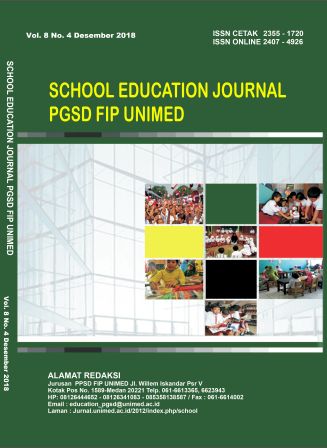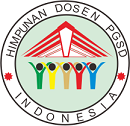MENINGKATKAN HASIL BELAJAR SISWA DENGAN TEKNIK ANALISIS DEKRIPTIF KUALITATIF MATA PELAJARAN BAHASA INDONESIA KELAS VIII SMP NEGERI 4 TEBING TINGGI
DOI:
https://doi.org/10.24114/sejpgsd.v8i4.11678Abstract
This study aims to improve student learning outcomes with qualitative descriptive analysis techniques Indonesian subjects. The research subjects were VIII grade students of SMP Negeri 4, Tebing Tinggi city. With the state of the students in the class totaling 30 students where men numbered 16 people and women numbered 14 people. From the results of research on student learning outcomes with the method of Qualitative Descriptive Analysis Technique in Class VIII of SMP Negeri 4 Tebing Tinggi has a positive impact on improving student learning outcomes. Based on the results of the questionnaire analysis the student responses can be concluded that students give a positive response to learning with a Descriptive Analysis Technique approach Qualitative. This is reinforced by interview data which states that students are interested in learning with a Qualitative Descriptive Analysis Technique approach. In addition, it can be seen from the increase in the percentage of students' mastery learning in the pre-cycle (70.17%), the first cycle 80.42%), the second cycle (92.50%).Keywords: Qualitative Descriptive Analysis Techniques, Learning Outcomes, Indonesian LanguagePublished
Issue
Section
License
Authors whose manuscripts are approved are approved as follows:
- The publication rights for all journal manuscript materials published/published on the SEJ (School Education Journal) E-Journal site are held by the editorial board with the author's knowledge (moral rights remain with the manuscript authors).
- The formal legal requirements for accessing this electronic digital journal article are subject to the terms of the Creative Commons Attribution-ShareAlike (CC BY-SA 4.0) license, which means that E-Journal SEJ (School Education Journal) has the right to store, transfer media/format, manage in the form of a database, maintain, and publish articles without asking permission from the author as long as the author's name remains as the copyright owner.
- Manuscripts published/published electronically are open access for educational, research, and library purposes.










